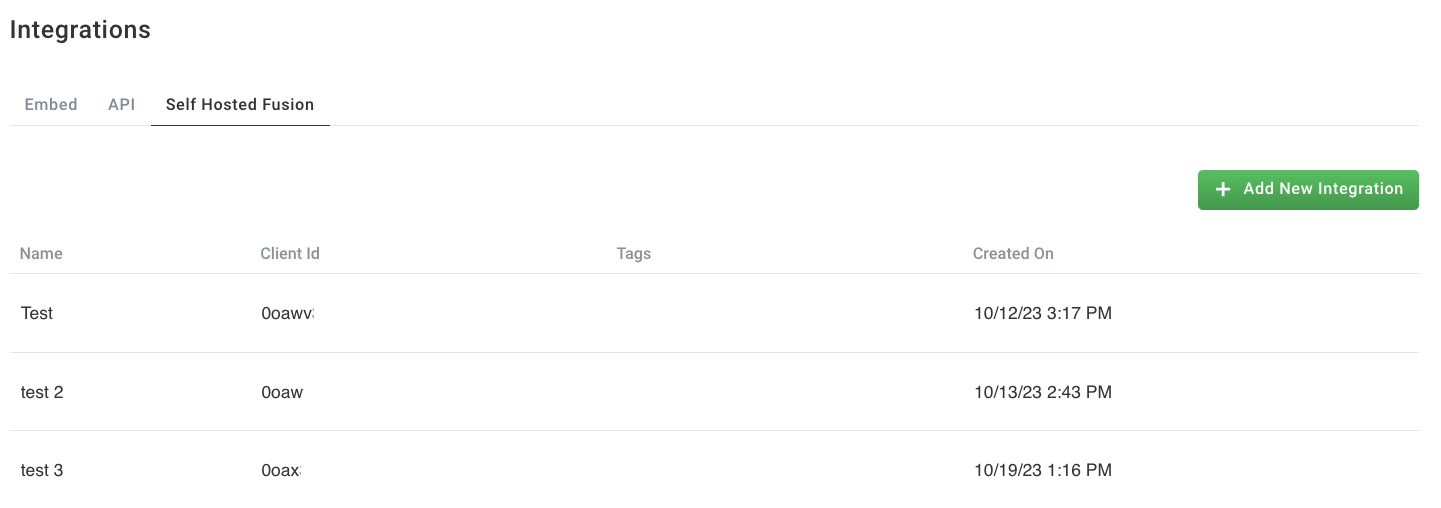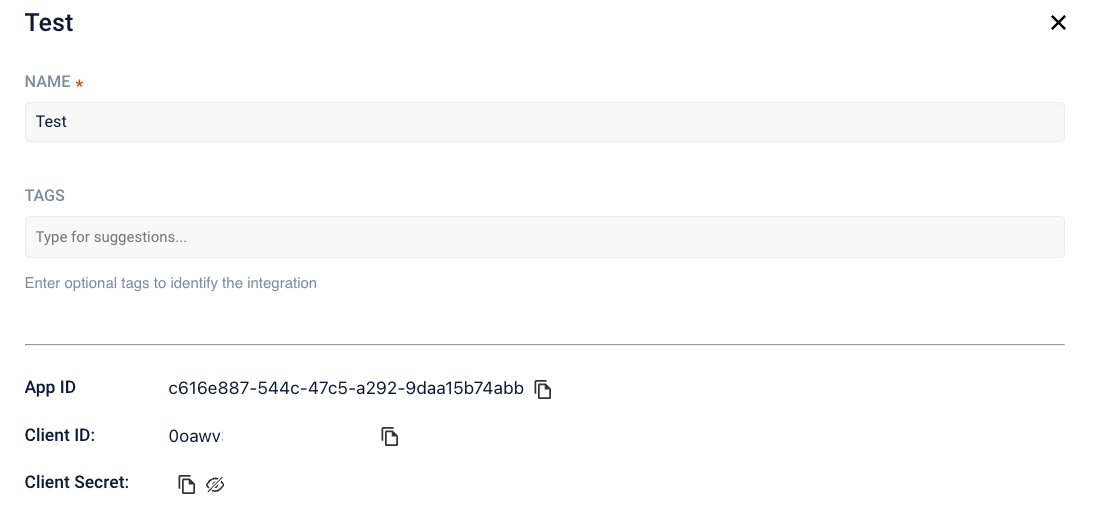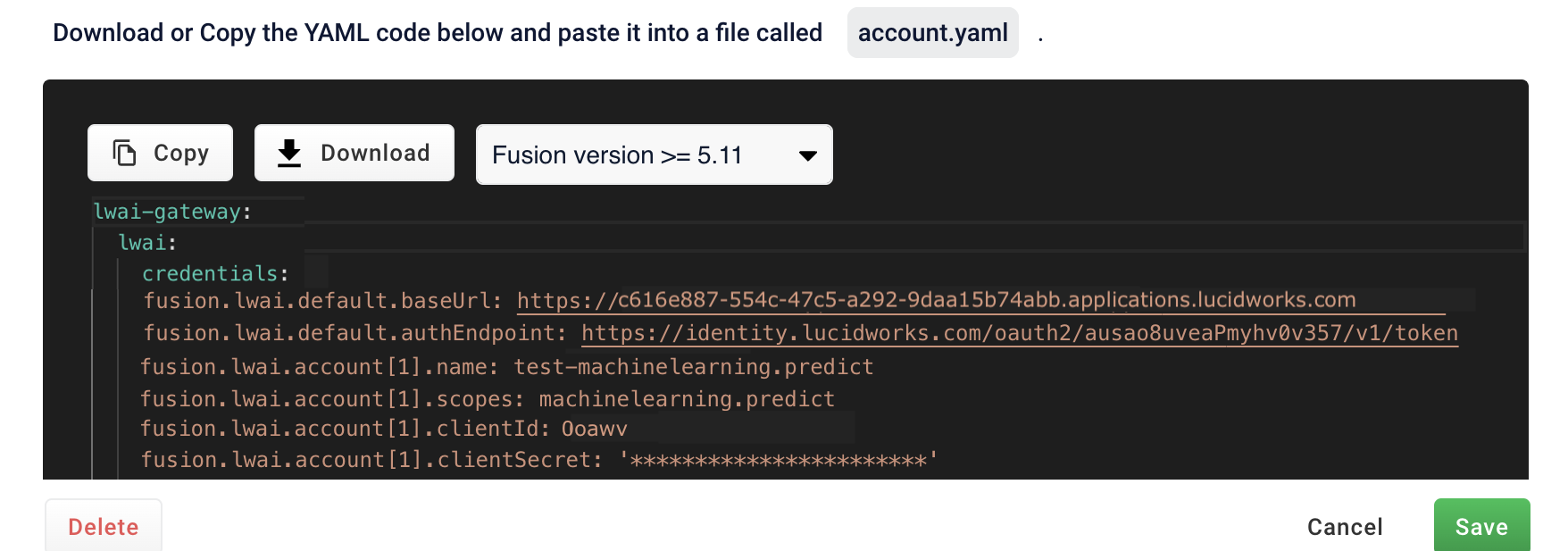Self-hosted Fusion integrationsLucidworks AI
Self-hosted Fusion clients can create integrations that connect Fusion to use Lucidworks AI functions. For information about how to create and manage integrations, see Manage self-hosted Fusion integrations.
Self-hosted Fusion integrations screen
When you select the Lucidworks AI Integrations Self-hosted Fusion tab, the screen displays the integrations created to connect Fusion to Lucidworks AI functions.

The following table describes the information for each integration instance.
| Field | Description |
|---|---|
Name |
The name of the integration instance. |
Tags |
Optional freeform text that identifies the integration instance. |
Client ID |
The unique client value that is part of the information required to obtain OAuth 2.0 authorization. For a self-hosted Fusion client integration, this value is unique to the specific integration. For more information, see Credentials. |
Created on |
The date and time the integration was created. |
Integration details screen
If you click an integration instance from the list, the details screen displays.


| Field | Description |
|---|---|
Name |
The name of the integration instance. |
Tags |
Optional freeform text that identifies the integration instance. |
App ID |
The unique Lucidworks AI application identifier generated when the application is created. |
Client ID |
Your organization’s unique identifier. For a self-hosted Fusion client integration, this value is unique to the specific integration. For more information, see Credentials. |
Client Secret |
The private client value that is part of the information required to obtain OAuth 2.0 authorization. You must keep this value secret. Do not use it in public clients such as client-side applications. For more information, see Credentials. |
Copy |
Copies the YAML code to the clipboard. You can paste the code in the file on your system. |
Download |
Downloads the YAML code to the |
Fusion version |
Select the Fusion release running on your system to display the related YAML code. |
YAML code |
The specific information about the integration instance that you must copy into your |